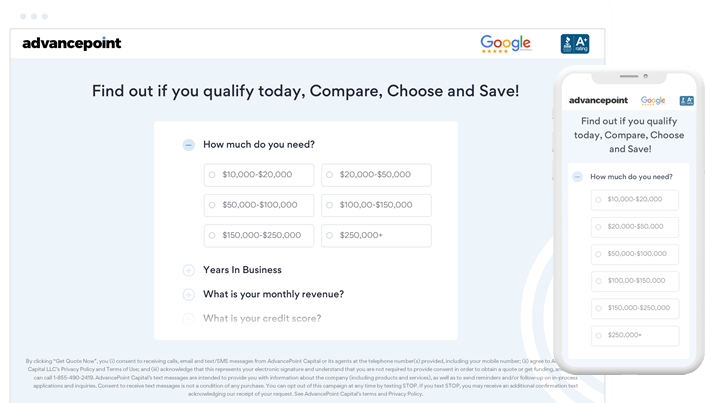
What is a Private Business Loan?
By definition, a private business loan is any business financing provided by a non-bank or traditional business lending source. The private business loan comes from lenders that use all types of collateral to secure their lending, including, but not limited to, business assets, personal assets, and commercial real estate to secure their business lending interests.
Private Lending for Small Businesses
As a small business owner, you are probably aware of various traditional business loans like Bank loans, bank business lines of credit, and Small Business Administration (SBA) loans. You probably have also discovered some alternative business funding products as well, like short-term business loans, invoice factoring, equipment leases or loans, as well as business and merchant cash advances. But, beneath all these common financing products for businesses lies private money lenders — who are lending cash through different types of private loans to help small business owners. A private lender has a lot of flexibility and attractive terms, however, they can be difficult to find for financing.
AdvancePoint Capital can provide private lending to small businesses and borrowers that need it the most. As a private money lender for startup businesses, we’re here to offer alternative solutions to financing.
What about those lending hard money? Well, a hard money lender may also invest private capital to assist with financing a borrower. These lenders are private lenders that utilize assets, typically real estate, to secure loans. These are also considered non-institutional private lenders or lenders that far outnumber more traditional sources.

Get Started Today
AdvancePoint Capital makes the loan application process a simple, straightforward experience.

The Truth About Private Business Loans
When looking online by doing a Google search, you will find many sources that will tell you a lot of products that are actually traditional or alternative somehow are considered private business loans just because they are not provided by an FDIC Bank or Credit Union. The bottom line is that it is just not true.
In the last ten years, with the advent of the financial technology revolution, a lot of well-established, and well-funded, private and public companies have been successfully providing loans to real estate investors and other small businesses. We would be glad to assist you in learning about private lending and how it may be able to help you.
Since business lending is not regulated as much as the consumer end, private business loans and lines of credit are initiated by individuals and small financial collectives or “family offices” that will take on greater risk than banks, credit unions, or small business lenders. These private lenders for business loans have their own set of rules that usually entail a short-term loan or line of credit with higher costs than that of common business lending options and secure with collateral.
Hard lending is very popular with businesses such as the property investor industry because they can use the collateral of real estate to secure private loans, which they love. This can serve as a type of private lender experience, as it’s coming from a private lending source. An investment property has a ton of value. It’s a hard asset that offers some real security against the capital they are lending. For those looking for an alternative route, hard lenders offer a sound solution through investment property and other hard capital solutions.
How Does Hard Money Lending Work?
Small businesses can discover hard funding through alternative online lenders such as AdvancePoint Capital. Unlike traditional loans, private loans are asset-based — which means that the asset acts as the collateral and will back the loans, mitigating some risk. Typically, real estate investors will use commercial real estate as collateral for loans, and a private business lender will provide financing that can then be used for a variety of purposes. For instance, real estate investors can use these loans to fix and flip housing, develop a rental property, or secure additional estate properties for commercial purposes.

Terms and Conditions of a Private Business Loan
While getting a private business loan might be the best option for you, the terms and conditions might change your decision. Private money lenders for startup businesses tend to have higher private business loan interest rates, fees, and eligibility. Below are a few of the terms and conditions of private loans that you should be aware of:
Interest Rates
Interest rates will vary greatly from private lender to private lender. Private lenders tend to charge higher interest rates than other forms of business lending.
Terms
1 to 12 months is average but up to 5 years (60 months) with the potential of extensions. This type of business funding may also be in the form of lines of credit.
Fee
The cost will vary, typically 1% to 5% Origination Fee
Payment
Monthly, Bi-weekly, and in some cases daily Monday through Friday
Credit Eligibility
All types of credit are considered from Poor to Excellent. Business Credit requirements vary as well.
Collateral
May be required
Use of funds
A wide range of uses of funds are available
Credit Limit
As they say, the sky’s the credit limit when it comes to how much capital you can receive with a private business loan. Private lenders vary greatly in terms of private business loan amounts and how much is available to borrow.
Documentation
An application as well as providing financial statements will be required at a minimum. Will depend on the purpose and use of funds.
Most Common Uses for Private Business Funding

Private Business Funding can be used for any of the following requirements:
- Cash Flow to stabilize operating bank account
- Emergency Payroll funding
- Bridge business loan
- Fix and Flip loan
- Emergency Cash infusions due to extenuating circumstances
- New business funding
- Advertising/Marketing
- Required Repairs of existing facilities
- New or Used Equipment loan
- Inventory or supplies funding
- Business Expansion funding
- Commercial or Residential property acquisition
Pros and Cons of Private Business Loans
Pros
- Private business loans offer to fund when traditional or alternative funding sources do not
- More Flexible and creative loan structure than traditional funding
- Allows small businesses to take advantage of unique opportunities when other funding sources do not
- Give property investors the ability to fix and flip without worrying about funding sources
Cons
- Costs and terms are more expensive than traditional business funding.
- The financial stability of the private funding company providing business funding.
(always check for positive reviews online) - Customer support and technology like online customer access.

Alternatives To Private Business Loans for
Small Business Owners
While a private business loan might be suitable for your small business or a startup, there are various alternatives that you can apply for at Advancepoint Capital that includes:
Business Line of Credit
A business line of credit is an open revolving line. This type of funding allows business owners to draw funds when needed on-demand or make purchases—business lines of credit charge a principal & interest rate. Business lines of credit do have a credit limit (credit limit will vary based on qualifications) that cannot be exceeded without approval and are not open-ended forever and require renewal either semi-annually or annually (12 months) to be extended. Business lines of credit will require a credit history that’s good to excellent (a credit score can range from 620 and up). Business lines of credit are not term loans.
Long-Term Loans
Long-term small business loans are financial arrangements where a business borrows a significant amount of money from a lender and agrees to repay the loan over an extended period, usually ranging from 2 to 25 years.
These loans are designed to provide businesses with access to capital for large-scale investments or ongoing operations, and they typically come with lower interest rates compared to short-term loans. The extended repayment term allows businesses to manage their cash flow more effectively and make consistent payments over time, enabling them to fund long-term projects.
Short-Term Loans
Short-term small business loans are business loans with a repayment period of 6 to 18 months. Short-term loans allow for all credit types. The credit score ranges from 550 to 800. A Short-term business loan is not a line of credit. Payments are deducted monthly, bi-monthly, weekly or in some cases Monday-Friday for higher-risk borrowers based on credit grade.
Merchant Cash Advance (MCA)
Merchant Cash Advances (also known as a Purchase of Future Sales) advance a “lump sum” of capital upfront to a business owner based on the credit card sales of the business. Merchant cash advances are repaid by future credit card sales receivables by taking a fixed percentage of those future credit card sales batches until the payback amount is paid back in full. Merchant cash advances charge a factor rate and not an interest rate. MCA’s are not term loans but are short-term in nature in that the length of time to repay is normally less than 18 months. All credit considered (Credit score range 500 and above).
Business Cash Advance (BCA)
A business cash advance is an advance in which a company receives a lump sum of money upfront, based on the business's current revenue volumes, in exchange for a fixed percentage of its future sales or receivables as payback for a flat cost called a factor rate. Repayment typically is made through a predetermined ACH convenience payment either daily (M-F) or weekly.
Equipment Financing
Equipment financing refers to a lease or loan in which a business obtains funds to purchase or lease equipment necessary for its operations, with the equipment itself serving as collateral for the loan.



